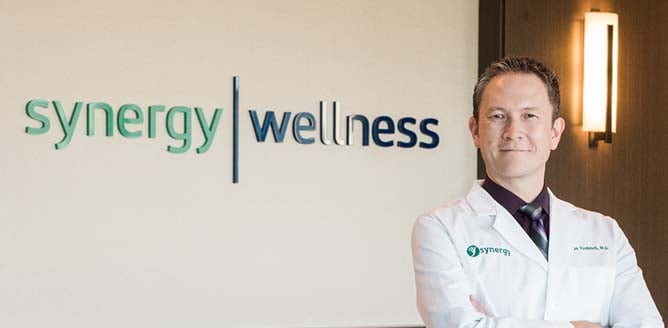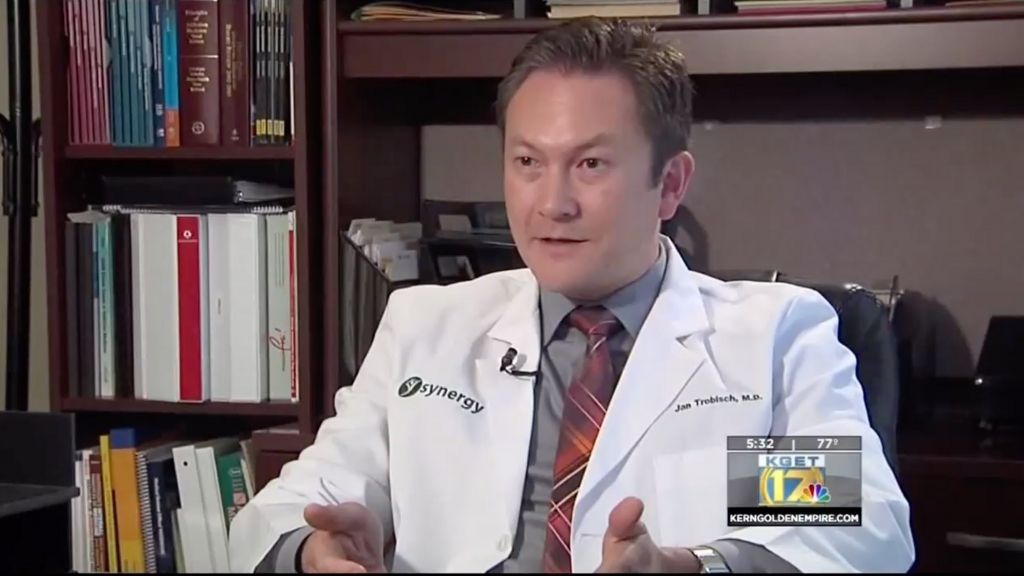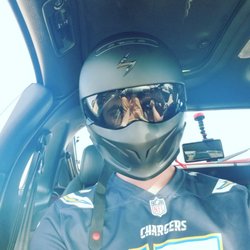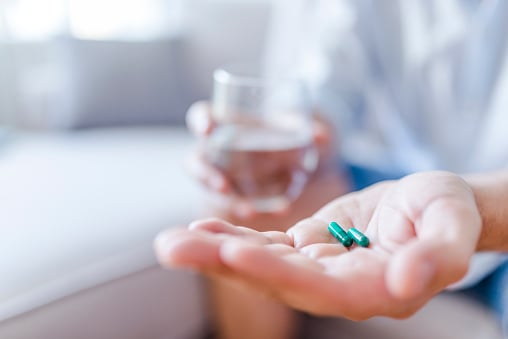I want to thank synergy recovery for taking the time to tell my friend about the various treatment programs and services they offer. Hiliary helped give my friend resources and hope for her husband (major ptsd). He had struggled for many years and it only seemed to get worse. My …
I can genuinely say Synergy has saved my life. I have gone through many programs and struggled for the majority of my life. I have now been clean for going on 2 years and I now have an amazing relationship with my husband and now we have a new baby …
Been doing age management and weight management. I couldn’t be Happier. Everyone is extremely nice helpful and very professional. First time I have ever been to a place like this always thought it was just for women. But they actually have quite alot of options for us guys to. Thanks …
I absolutely love Synergy! Staff is professional and friendly. Everything is very clean and it has a welcoming environment. Hillary is amazing and made me feel welcomed. I love that they offer a variety of services. I got my B12 shot and it went very smooth!
Hillary and Mal are two of the best. I love all the friendly staff and excellent service at Synergy. I wouldn’t have my procedures anywhere else.
Synergy and the staff have been extremely helpful. They are very professional and yet so caring. Jessica has been there for my partner and has made a great impact on him. She always does the most to make a difference for her patients. I definitely recommend to anyone needing a …
From the moment I walked in, to the moment I was leaving the staff was super friendly and helpful! Even with masks on you can see they’re smiling.
Highly recommend synergy! Staff is super friendly, and down to earth. They are very helpful!
Great experience, very helpful in the information that is given to me and all the staff was very friendly 😊
Excellent facility and staff provided very warm welcome and they are very organized and helpful to guide my specific health goals. I’ll definitely recommend to someone who needs to improve current health conditions.
Friendly and professional staff. Great services. Variety of appointment times available.
All the providers are very knowledgeable and professional. They really take an interest in your personal goals and the follow through and accountability is awesome. The office is clean and modern. Staff are friendly and nice. Everything is very efficiently ran.
So far so good. Everyone was friendly from the first person I encountered to the very last. No one seemed pushy and I didn’t feel pressure into buying any additional services. (But i may use more later) I’ll give another review later when I learn more.
The staff is friendly and professional. The facility is clean. I am eager to try out many of their services!
Love coming here. They communicate effectively whether it’s by email, text, or phone. I’ll definitely be coming for more!
I love this place. They make you feel very comfortable. They are absolute professionals in every aspect. I highly recommend to everyone. Also, it’s very easy to schedule an appointment.
Beautiful office,and very very comfortable. They have lots of different services other then weight lose. They do Botox, threading, so much more. All the girls up front are always so sweet and welcoming. The drs are great and will sit and take the time to answers any questions you may …
Everyone at Synergy was so nice and so helpful. Great experience, great services and wonderful staff.
The doctor is super nice and welcoming, so is the staff! I really trust them with my services.
Great staff! Very professional. The Physician Associate was extremely informative about my tx and medications.
The staff is always nice & attentive as well as very professional, the environment is very clean and comfortable. I have never felt judged by the staff & I felt like they remember you even though you may not be in there long.
Also have a good experience. All staff is friendly!
I had an amazing experience, they have a very positive atmosphere and the staff was very helpful and attentive. I immediately felt comfortable with them and they all made sure I had any questions I had answered!
The office is very nice and clean. The staff and Providers are very pleasant and helpful. I will utilize these services in the future.
Super friendly staff! Clean & comfortable place! I love synergy, would def recommend for all of their services.
I absolutely am so happy with my experience with Synergy! The staff is so sweet, knowledgeable and helpful, they really make you feel more at ease if you’re feeling intimidated. The facility is very clean and modern, I love the environment. I walk out of there feeling very satisfied with …
100% recommend! Staff is amazing, very knowledgeable with all procedures, and the facility is always nice & clean.
They’re always very nice and professional. I highly recommend their office. They provide an array of amazing services and are reasonably priced
Wonderful facility and staff. The coordinator and P.A. spent a lot of time with me, explaining all of my options and made me feel very comfortable. I am excited to continue my treatment with Synergy
Excellent service! No waiting time.
Professional, kind and informative staff. Very convenient to schedule appointments. I feel confident knowing I will always get the best care and service at Synergy.
I can go on and on about how wonderful this office is! The staff is professional and friendly. I would definitely recommend Synergy!
I have been to Synergy for a few different services and I have to say I am so pleased I found them. I love the facials, but the weight loss appointments are the most rewarding. Everything I get in one visit has been more than I have ever gotten when …
Firstly I like how they stay on top of their schedule time.. No waiting around for ever. Kay was super professional and made me feel very comfortable before, during and after my services. Overall everyone was nice and professional and the office is clean.
Synergy has always been great! I’ve seen multiple providers & have always loved my results. Highly recommend!!
I am so pleased with synergy wellness! Their staff are always pleasant and helpful. They offer so many procedures and always knowledgeable when I have questions. I highly recommend them to anyone I know and can’t say enough great things!
I have been coming to synergy for a few years now and I have never had a bad experience. The staff is so friendly and the girls make you feel extremely comfortable! Coming to synergy is well worth the drive to Bakersfield from Visalia !
Absolutely love this place, the staff goes above and beyond to make you feel at home from the moment you walk through the door. Your are immediately greeted by beautiful young happy faces all of whom are ready to answer all of your question and none of whom make you …
Great experience . Clean environment and everyone is so friendly. Myself and a couple of my friends all had a great experience with synergy and highly recommend it.
They have a great staff and are super efficient. I have been many places in Bakersfield and they have a good thing going here.
Synergy wellness center has impeccable customer service. The products/ procedures are top of the line. No one in town even comes close to what synergy has to offer. I strongly suggest to pay it a visit.
Synergy Wellness is a one-of-a-kind business, with a great professional team and a positive attitude. I would recommend this company to any colleague.
Love Dr Trobischs work. His office is super nice and his staff is super friendly. This place offers the newest technology and Dr Trobisch knows what he doing.I Always leave feeling beautiful.
Staff is great really nice building!
I love the atmosphere and staff. REALLY, great experience every time I go. They are cautious with my health and would not anything to compromise that health.
The staff there is sooooo amazing.. it’s always beautiful & clean in there.. the girls are always smiling & happy to help.. I highly recommend it! I’m personally afraid of needles but the shots there don’t hurt & the girls are so professional.. Definitely my go to spot!
Dr. Trobisch and his staff are amazing and knowledgeable.
I love coming here so peaceful as I walk in and the Nurses are so friendly…I recommend it!
The employees are so helpful and energetic . The doctors are awesome and very kind!
Love Dr Trobischs work. His office is super nice and his staff is super friendly. This place offers the newest technology and Dr Trobisch knows what he doing.I Always leave feeling beautiful.
The staff and doctors are extremely welcoming they helped me feel completely comfortable and not feel ashamed for needing help. There plans were easy to follow and worked extremely fast. I now feel happy with my body, I feel like my old self. I would highly recommend Synergy Wellness to …
Had my first appt today and they were all so incredibly nice and supportive and happy and upbeat. Love this place and haven’t even started anything yet. Taylor you are a doll!! Thanks for being so sweet. Maybe someday I can pet ur horse �
Love the new office!! The great promos are always worth it.
I am so happy with the level of professionalism I received!
I am extremely happy here I love everyone and they are helping me feel good about myself again!!!















































